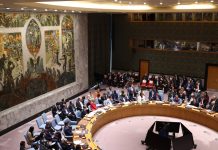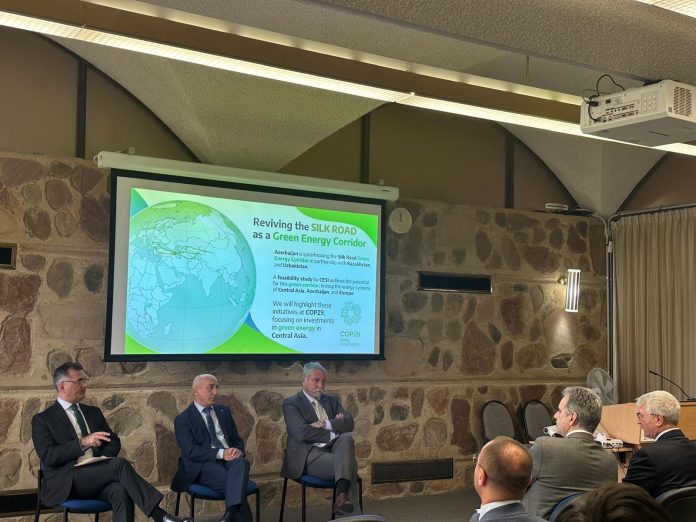On September 26, 2024, the Australian National University (ANU) Centre for European Studies, in collaboration with the embassies of Azerbaijan, Georgia, and Hungary, co-hosted a high-profile seminar titled “Black Sea Interconnectivity Hub and European Energy Security.”
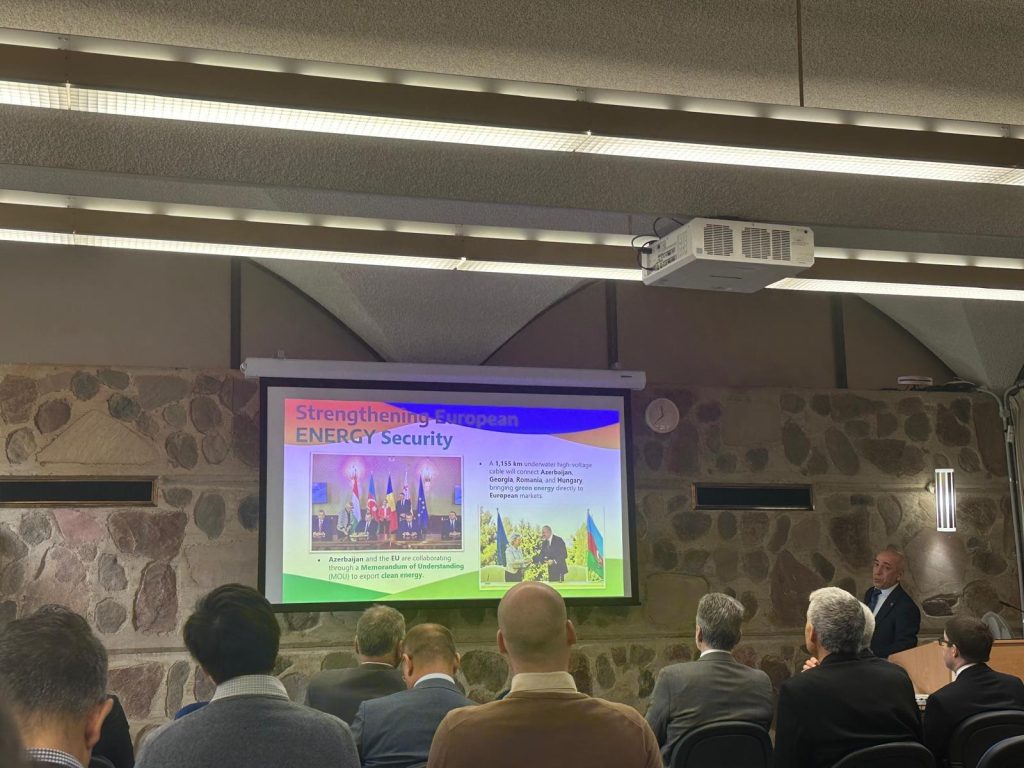
The event brought together experts, policymakers, and diplomats to explore the strategic significance of the South Caucasus in connecting the Caspian and Black Sea regions, with a focus on enhancing European energy security and promoting renewable energy development.
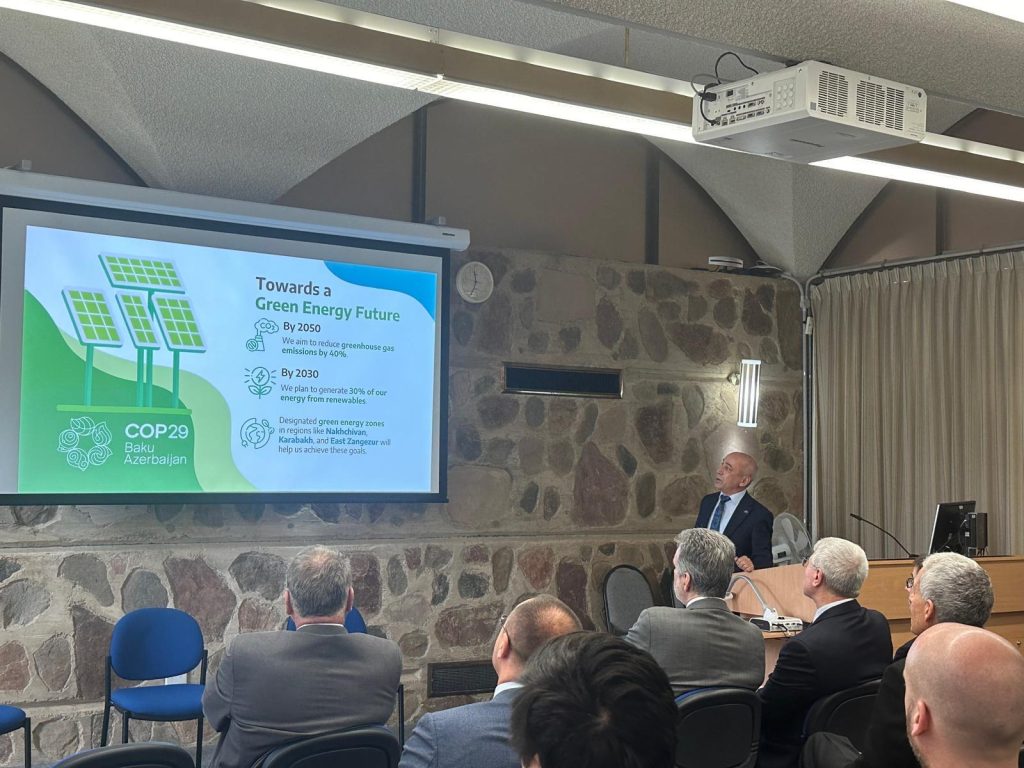
Key speakers included Professor Andrew Blakers of ANU, Dr. Vagif Jafarov from the Embassy of Azerbaijan, Mr. Beka Dvali, Ambassador of Georgia, and Mr. Zsolt Csenger-Zalán, Ambassador of Hungary. They highlighted the renewable energy potential in the region, emphasizing the crucial role of Azerbaijan, Georgia, Romania, and Hungary in developing a green energy corridor.
This corridor, supported by the European Union, facilitates the transfer of energy from the Caspian region to Europe, strengthening both regional connectivity and European energy security.
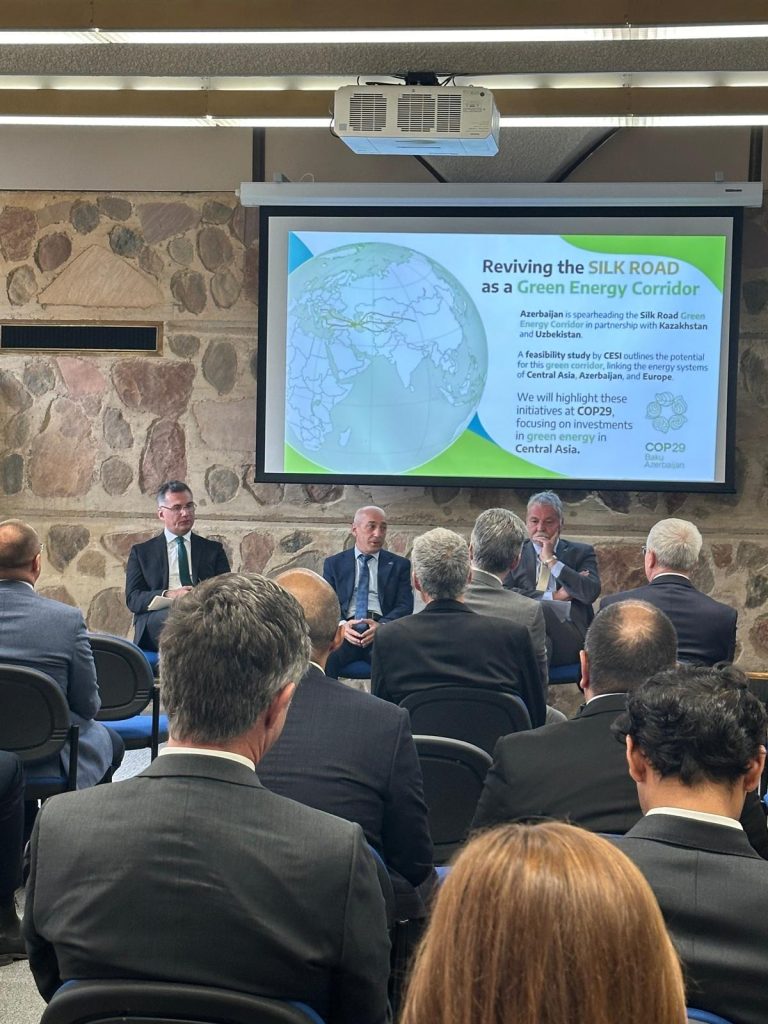
A major focus of the discussion was the “Green Corridor” project, which aims to create a high-voltage transmission network linking Azerbaijan to the European Union via Georgia. This initiative is poised to enhance energy security, boost renewable energy capacities, and open up new transit opportunities.
The seminar also emphasized the South Caucasus’s strategic location along the historic Silk Road, presenting the potential to revive this route as a modern Green Energy Corridor, connecting Central Asia and Europe through sustainable energy networks.
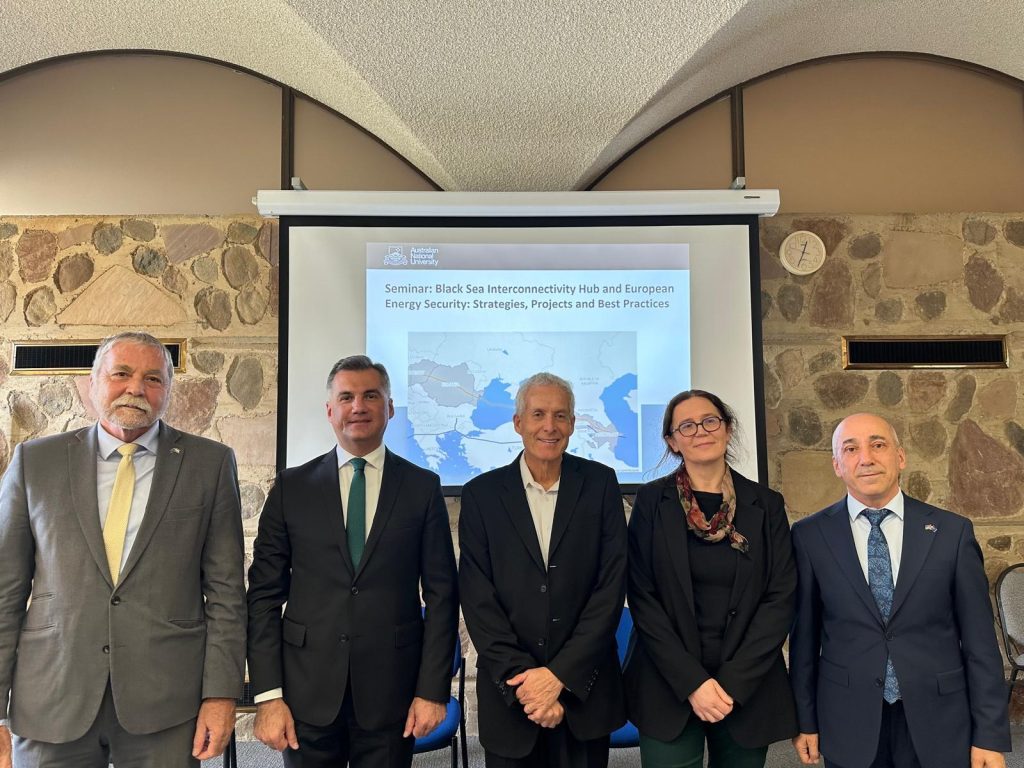
As the host of COP29, Azerbaijan’s commitment to climate change action and its efforts in transitioning towards a green economy were also discussed. The event underscored the importance of EU-South Caucasus cooperation in energy and connectivity projects, such as the Caspian-Black Sea-Europe Green Energy Corridor, to promote energy security and a sustainable future for Europe.
The seminar highlighted the pivotal role the South Caucasus region plays in facilitating Europe’s energy transition and the global shift towards greener energy sources.













